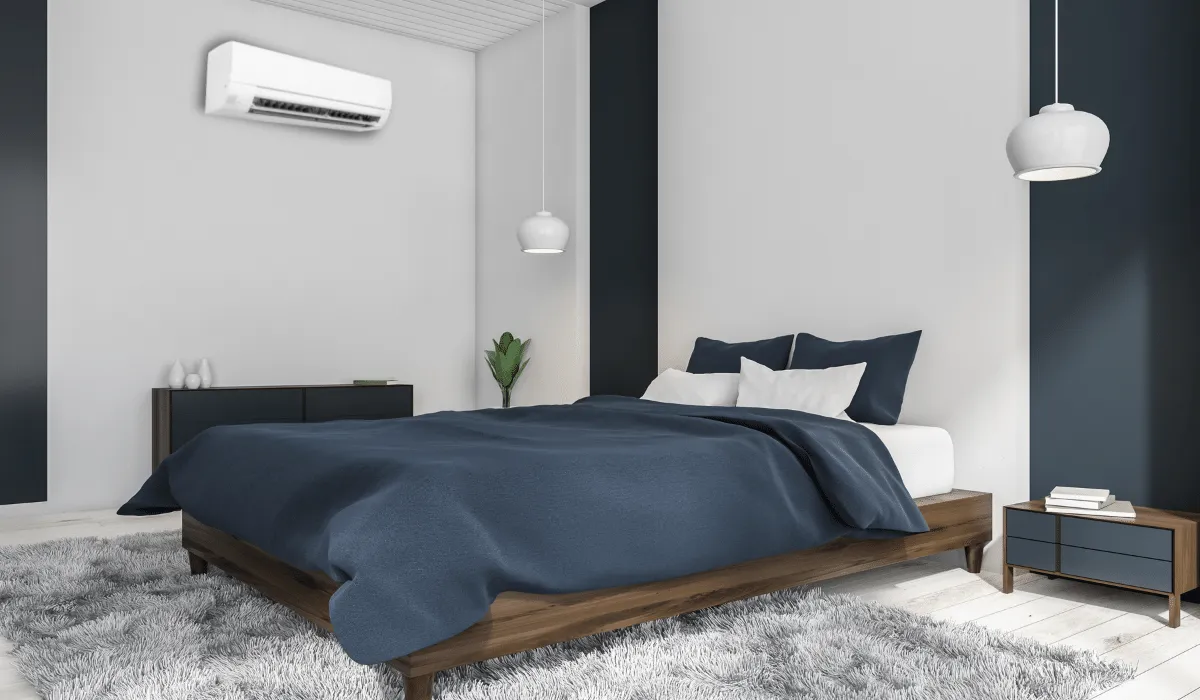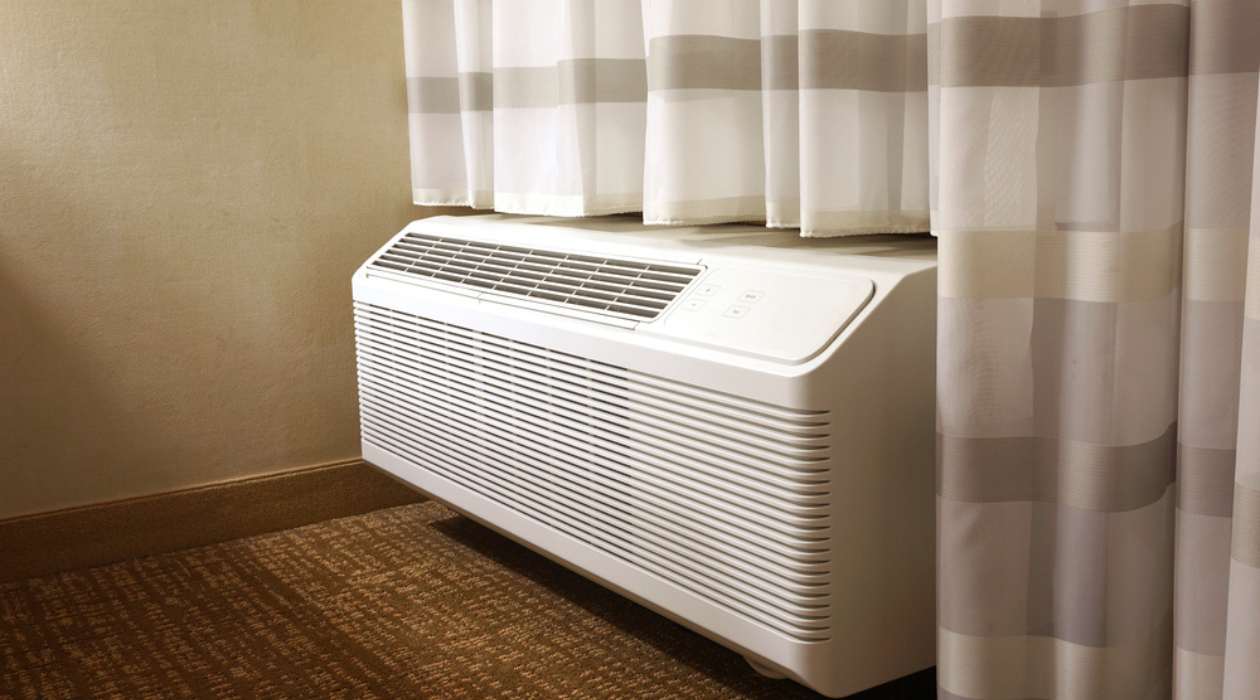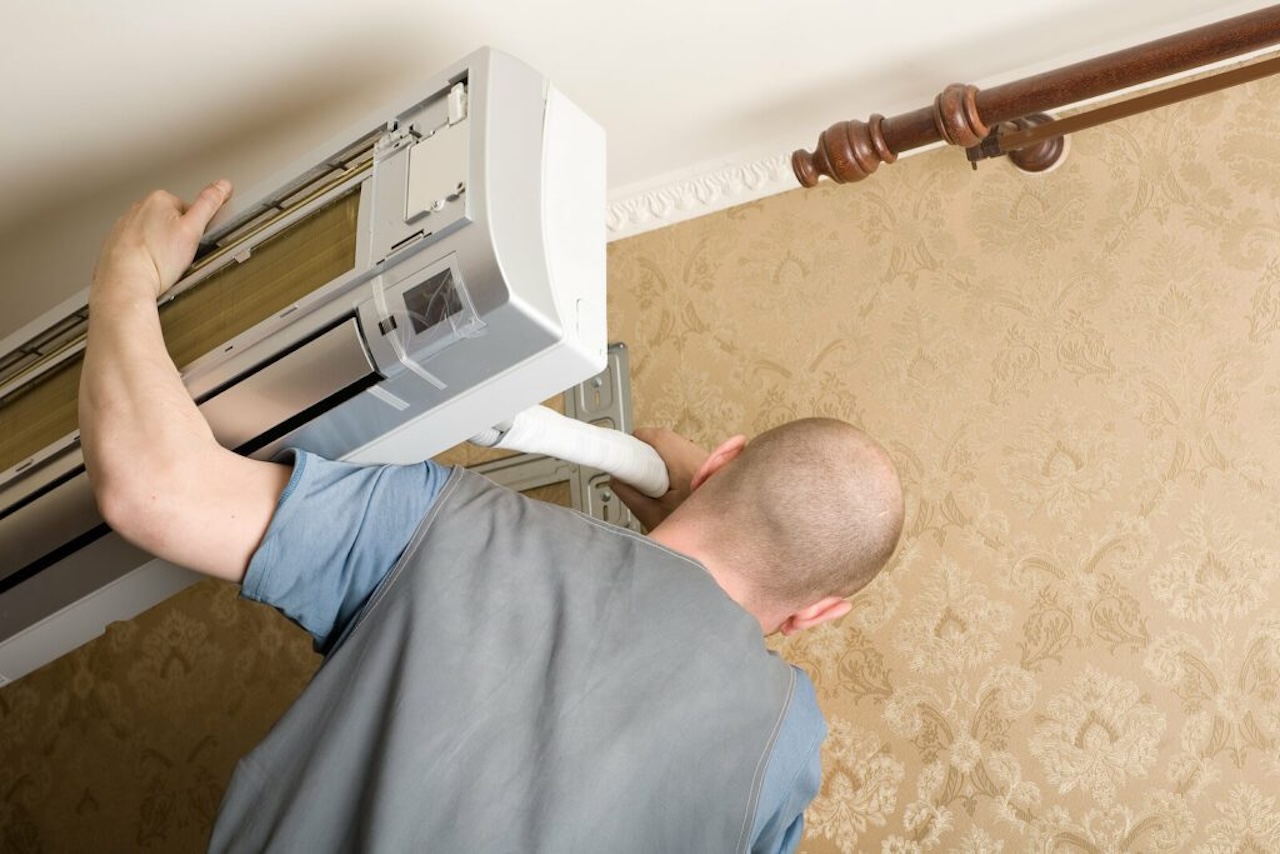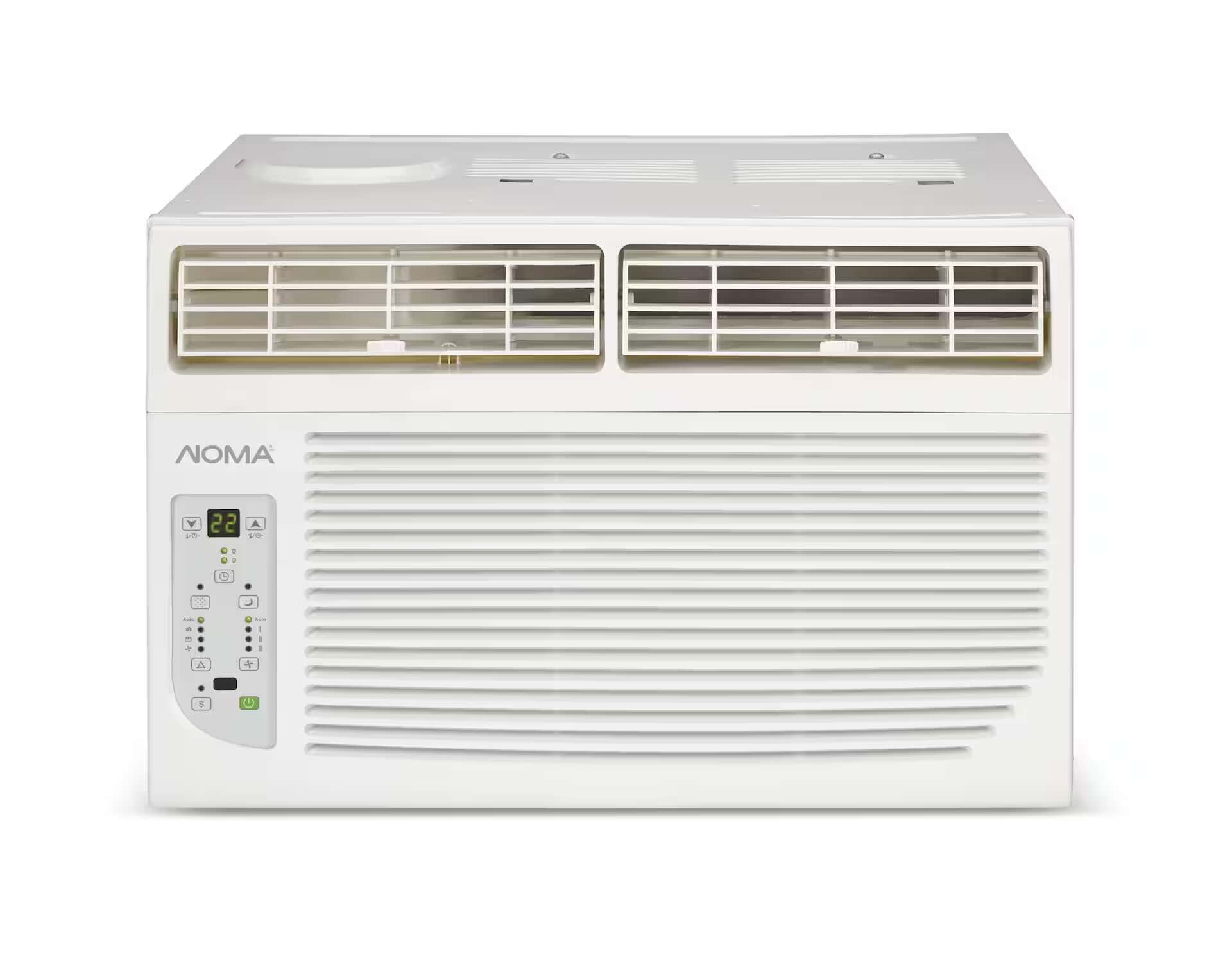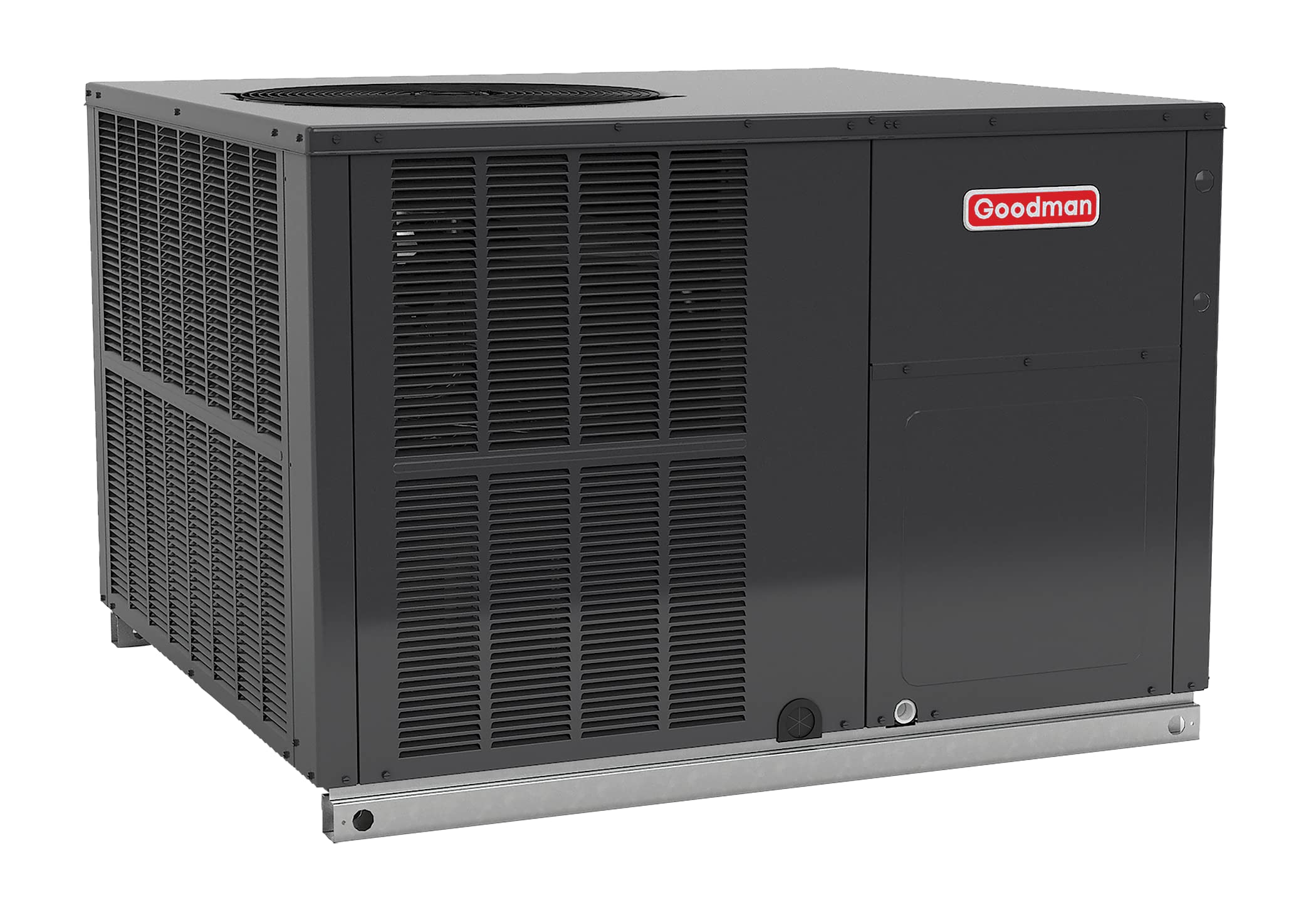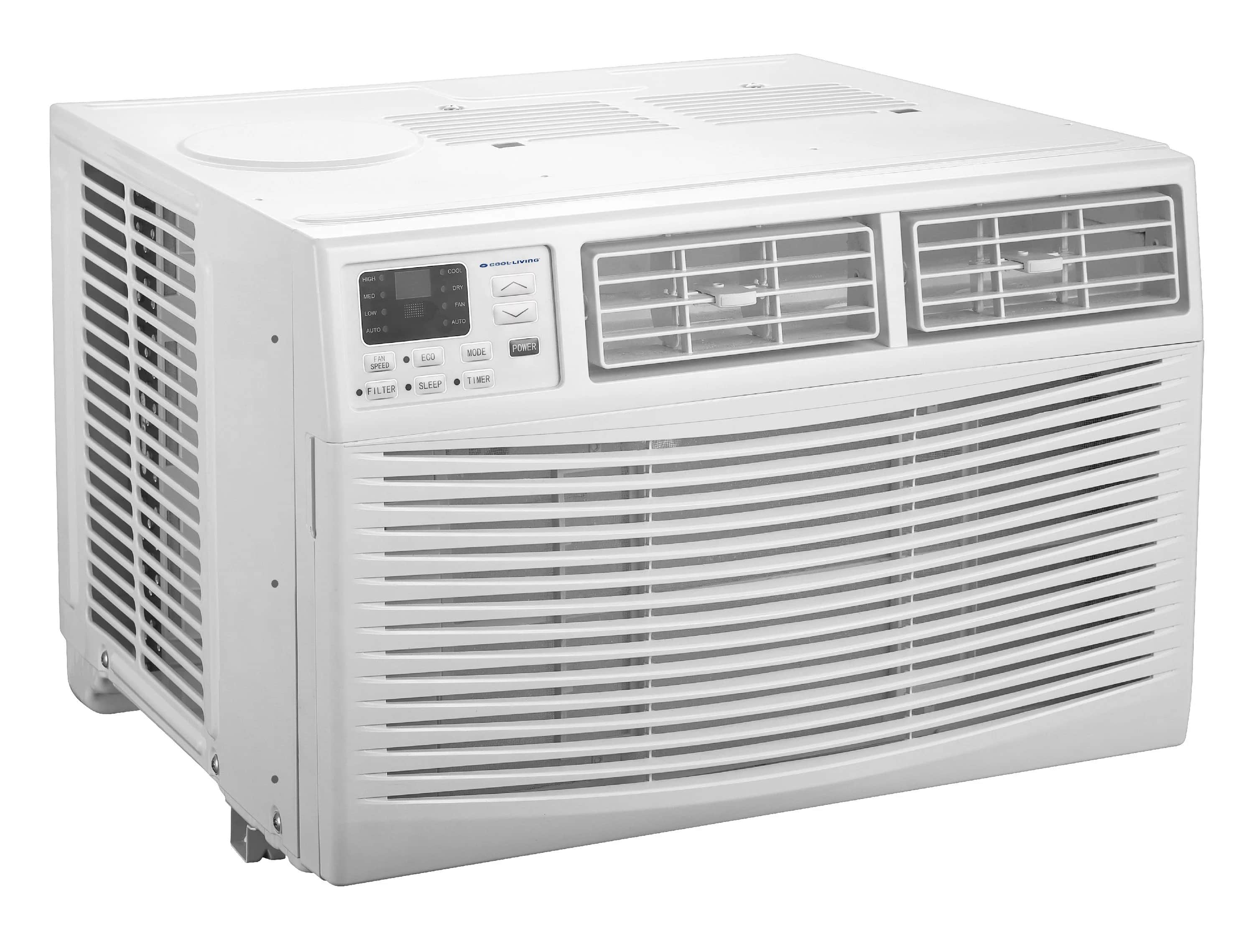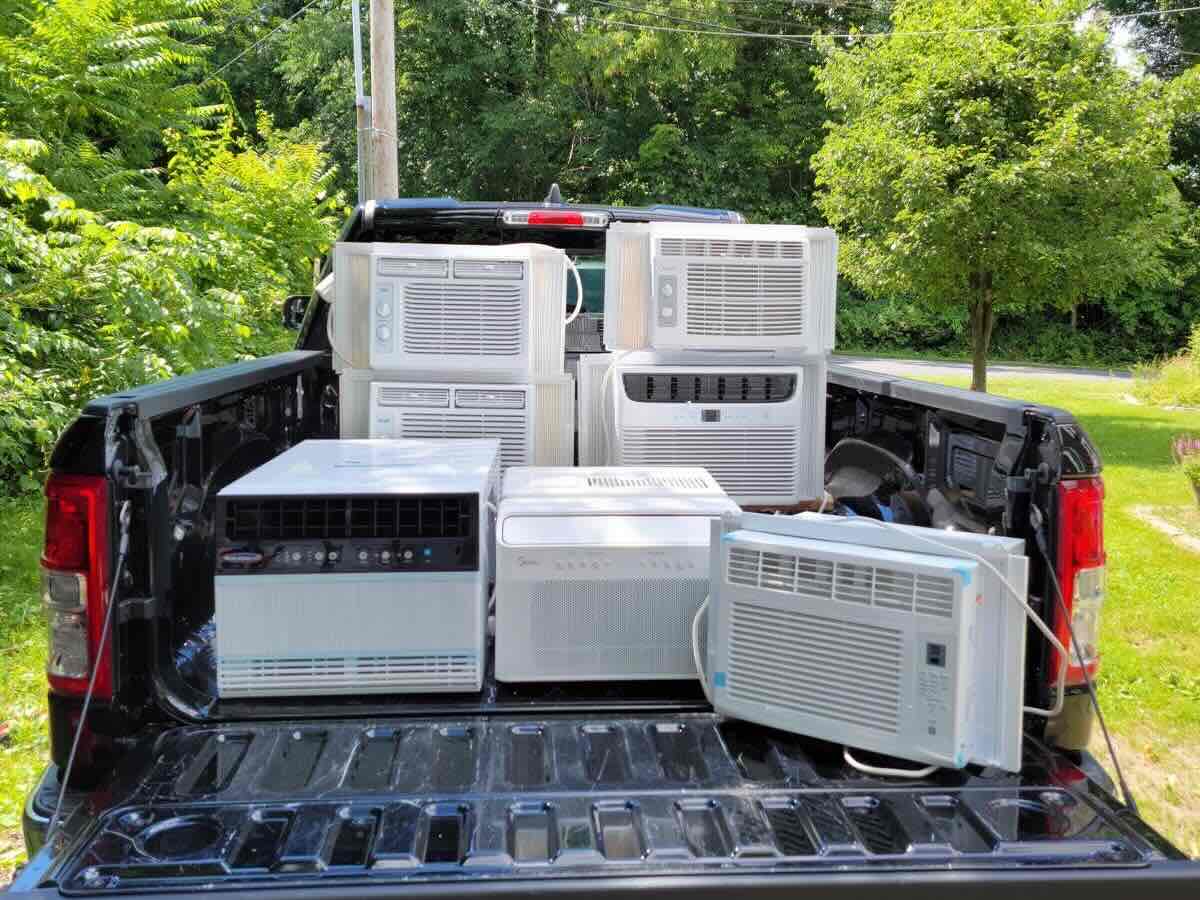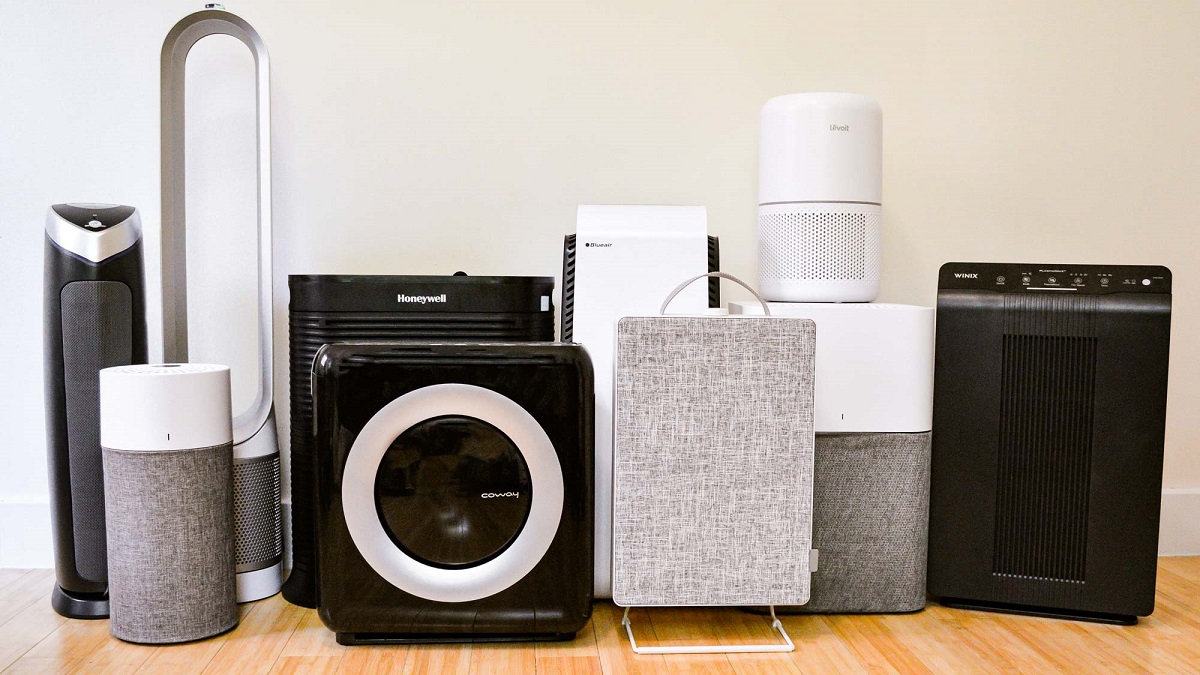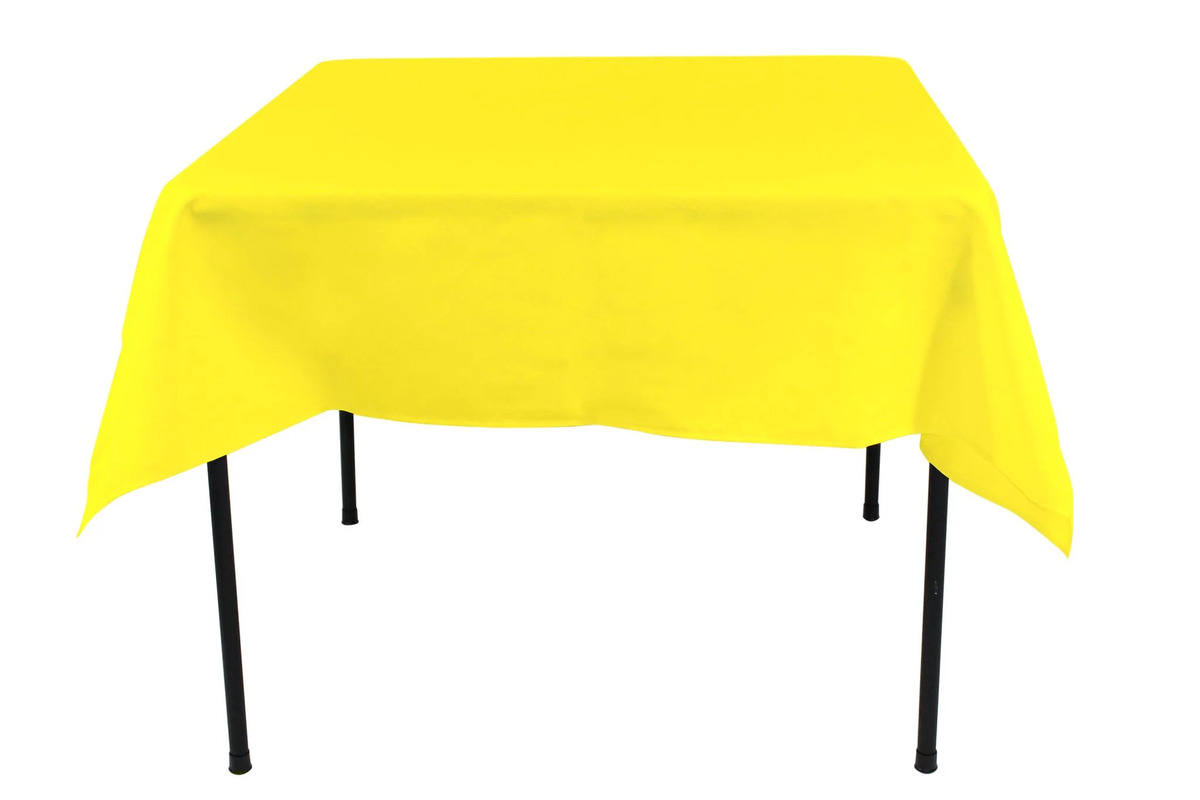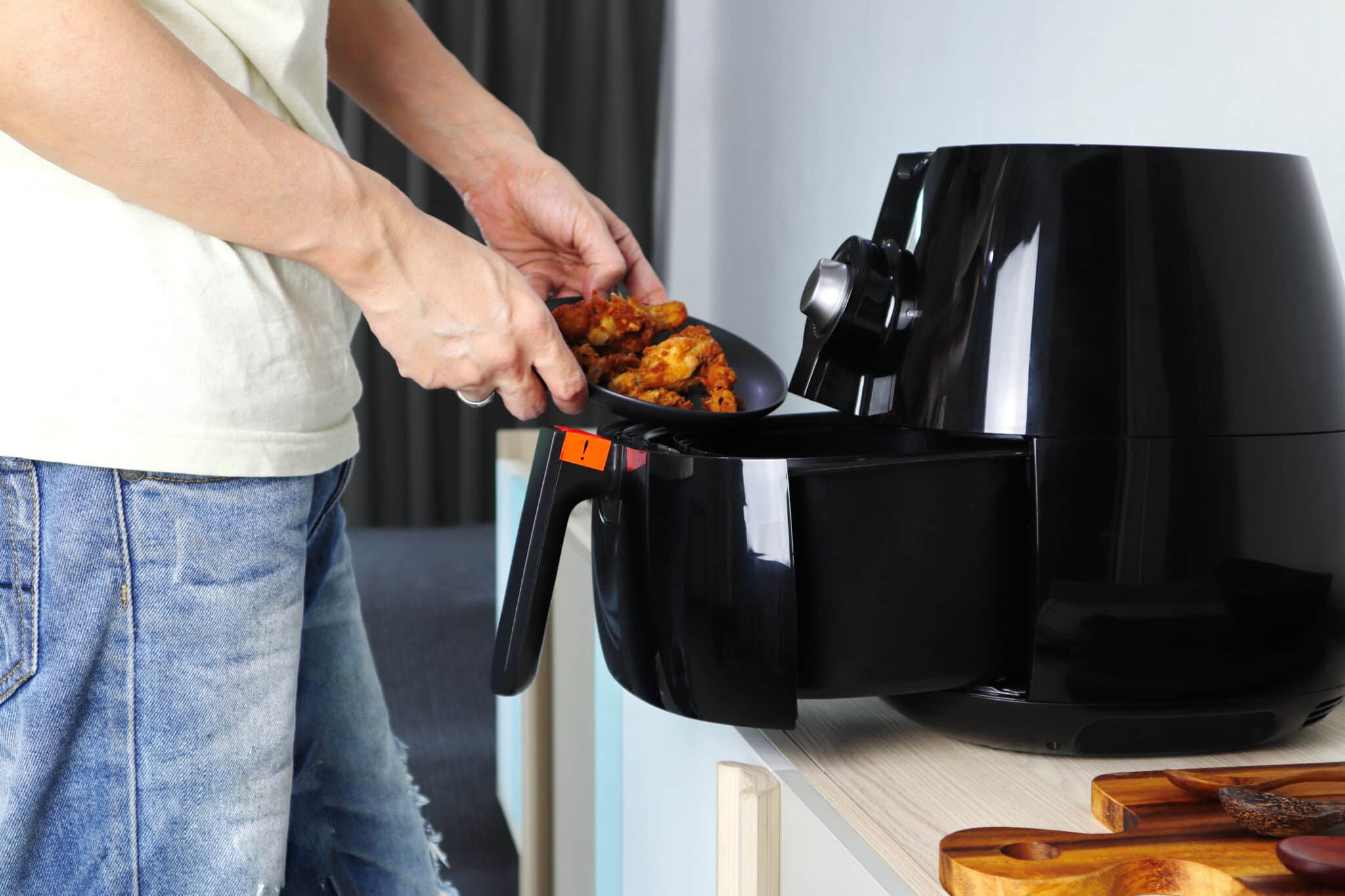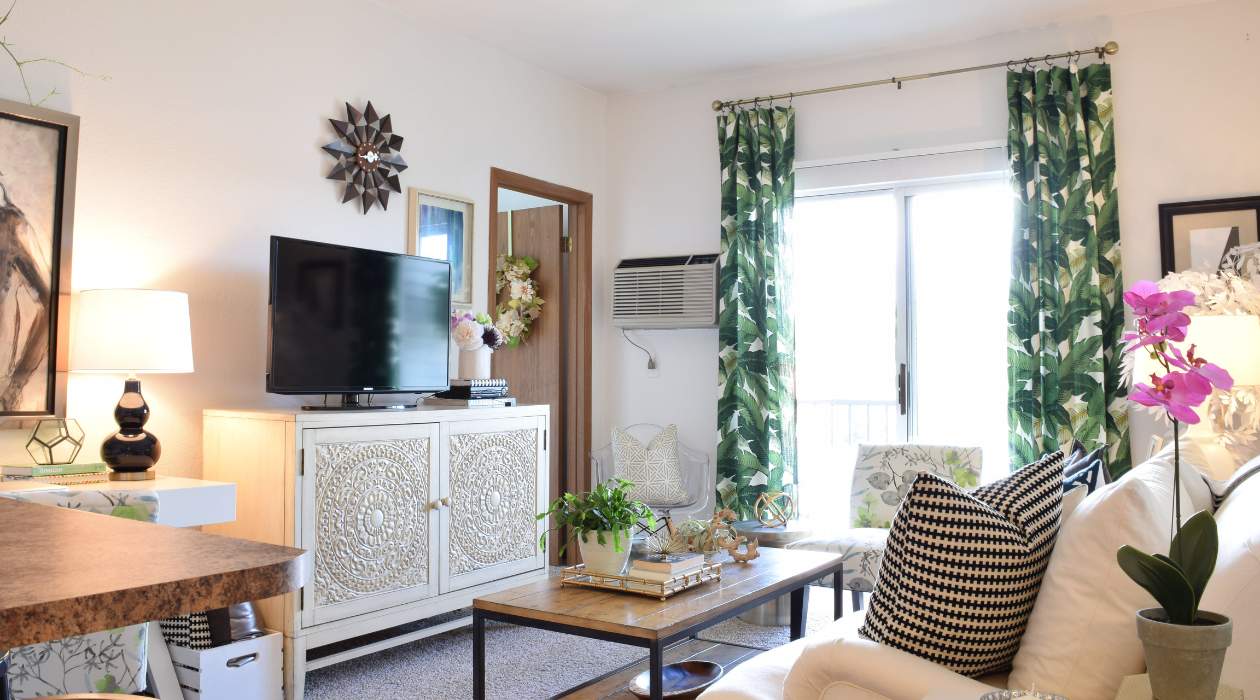Home>Home Maintenance>What Size Air Conditioner Is Needed For 1000 Square Feet
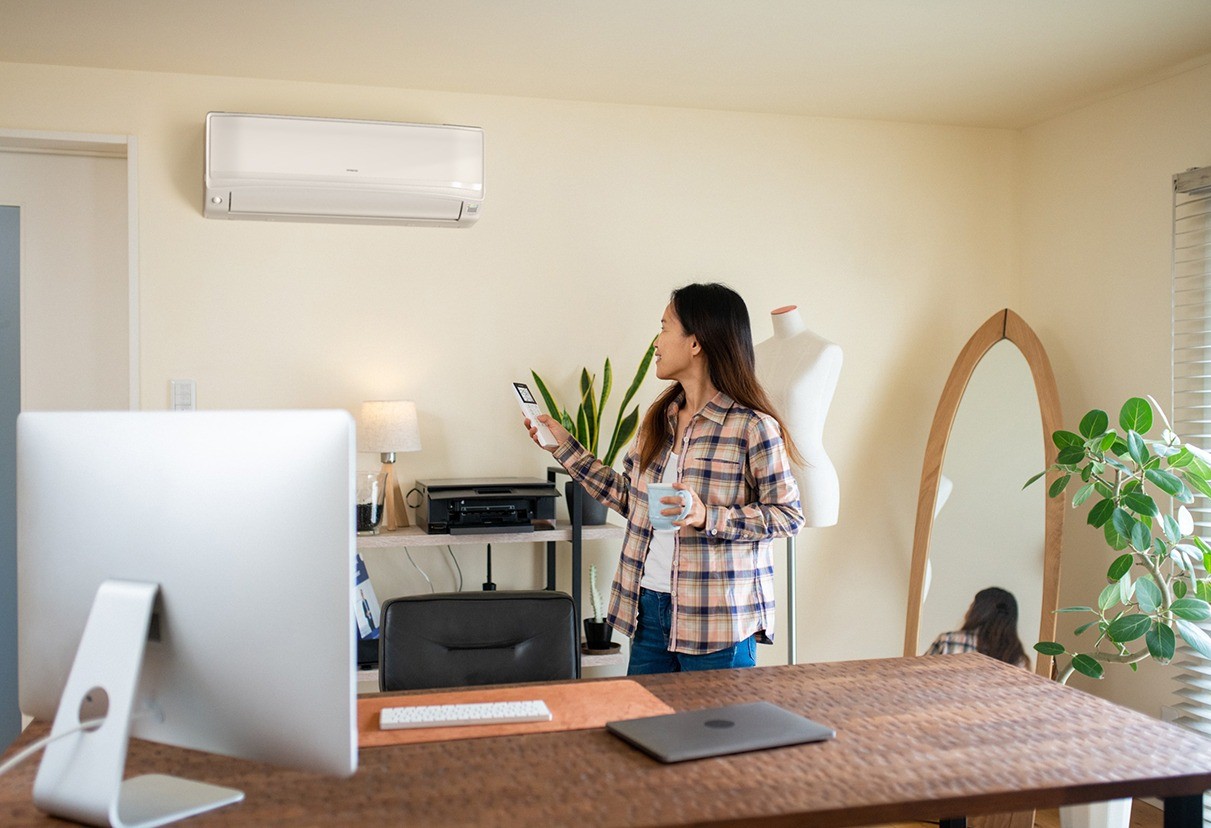

Home Maintenance
What Size Air Conditioner Is Needed For 1000 Square Feet
Modified: March 7, 2024
Find the ideal size air conditioner for your 1000 square feet home with our comprehensive guide on home maintenance. Invest in the right cooling system for optimal comfort and energy efficiency.
(Many of the links in this article redirect to a specific reviewed product. Your purchase of these products through affiliate links helps to generate commission for Storables.com, at no extra cost. Learn more)
Introduction
When it comes to keeping your home cool and comfortable, having the right size air conditioner is crucial. A properly sized air conditioner ensures that each room receives efficient and effective cooling, preventing the unit from overworking or not providing adequate cooling. If you have a 1000 square feet home, it’s important to determine the appropriate size of air conditioner needed.
Choosing the right size air conditioner involves considering various factors, such as the square footage of your home, local climate conditions, insulation levels, and the number of occupants. By taking these factors into account, you can ensure that your air conditioner operates optimally, providing consistent and comfortable cooling throughout your home.
In this article, we will explore the factors to consider when determining the size of air conditioner needed for a 1000 square feet home, as well as the importance of energy efficiency and some additional considerations to keep in mind.
So, let’s dive in and find out what size air conditioner is needed to keep your 1000 square feet home cool and comfortable all year round!
Key Takeaways:
- Choose an air conditioner for your 1000 sq ft home by considering factors like climate, insulation, and sun exposure to ensure efficient and effective cooling without overworking the unit.
- Prioritize energy efficiency when selecting an air conditioner, looking for SEER ratings, inverter technology, and Energy Star certification to save money and reduce environmental impact.
Factors to Consider
Before deciding on the size of the air conditioner for your 1000 square feet home, there are several important factors that you need to consider. These factors will help you determine the cooling capacity required to maintain a comfortable indoor environment:
- Climate: The climate in which you live plays a significant role in determining the size of the air conditioner needed. If you live in a hot and humid area, your cooling requirements will be higher compared to those in cooler climates. The temperature and humidity levels should be taken into account when calculating the cooling capacity.
- Insulation: The level of insulation in your home affects how well it retains cool air. Proper insulation helps to reduce heat transfer, increase energy efficiency, and ensure that the air conditioner operates more effectively. Consider the insulation in your walls, roof, and windows when determining the size of the air conditioner needed.
- Sun exposure: The amount of direct sunlight your home receives can significantly impact the cooling requirements. A home that is exposed to prolonged periods of direct sunlight will require a larger air conditioner to cool the space adequately.
- Number of occupants: The number of people living in your home also affects the cooling needs. More people mean a greater heat load, as each person generates body heat. Consider the number of family members or occupants in your home when determining the size of the air conditioner needed.
- Room usage: Evaluate how each room in your home is used. Rooms that have higher occupancy or generate more heat from appliances will require more cooling capacity. For example, the kitchen or living room may need additional cooling due to cooking appliances or electronic devices.
By considering these factors, you can get a better idea of the cooling capacity required for your 1000 square feet home. This will ensure that your air conditioner can effectively maintain a comfortable indoor environment without overworking or underperforming.
Calculating the Cooling Capacity
Now that you have considered the important factors, it’s time to calculate the cooling capacity needed for your 1000 square feet home. The cooling capacity is typically measured in British Thermal Units (BTUs) per hour, which represents the amount of cooling required to cool one square foot of space.
To calculate the cooling capacity, you can use the following formula:
BTUs = Area (in square feet) × BTU per square foot
The BTU per square foot varies depending on factors such as climate, insulation, and sun exposure. As a general guideline, you can use the following ranges:
- For well-insulated homes in mild climates: 25-30 BTUs per square foot
- For moderately insulated homes in moderate climates: 30-35 BTUs per square foot
- For poorly insulated homes in hot or humid climates: 35-40 BTUs per square foot
Using these ranges, you can estimate the cooling capacity needed for your 1000 square feet home. For example, if you have a well-insulated home in a mild climate, you can multiply the area (1000 square feet) by the lower range (25 BTUs per square foot) to get a cooling capacity of 25,000 BTUs.
However, it’s important to note that this is just a rough estimate. To get a more accurate calculation, you may want to consult with a professional HVAC technician who can take into account specific factors unique to your home.
Remember, it’s better to slightly oversize the air conditioner to ensure adequate cooling, rather than undersizing it and experiencing discomfort. Oversizing can lead to increased energy consumption and shorter equipment lifespan, but proper insulation and energy-efficient models can help mitigate these issues.
By calculating the cooling capacity accurately, you will have a better understanding of the BTU requirements needed to keep your 1000 square feet home cool and comfortable.
BTU Requirements
Now that you have calculated the cooling capacity needed for your 1000 square feet home, it’s important to understand the specific BTU requirements when selecting an air conditioner. The BTU rating of an air conditioner indicates its cooling power and determines its ability to cool a certain area.
For a 1000 square feet home, the recommended BTU range is typically between 20,000 to 25,000 BTUs. However, keep in mind that this range can vary based on factors such as climate, insulation, and sun exposure. Adjustments may need to be made based on your specific circumstances.
If you go with an air conditioner that has too low a BTU rating, it will struggle to cool your home adequately, resulting in discomfort during hot summer days. On the other hand, an air conditioner with too high a BTU rating will cycle on and off frequently, which can lead to excessive humidity, decreased efficiency, and higher energy consumption.
It’s essential to strike a balance between adequate cooling capacity and energy efficiency. An oversized air conditioner may provide faster cooling, but it will also consume more energy and may not dehumidify the space effectively.
Additionally, energy-efficient models with higher SEER (Seasonal Energy Efficiency Ratio) ratings can provide the desired cooling while consuming less energy. SEER ratings indicate the energy efficiency of an air conditioner, with higher ratings reflecting higher efficiency. Look for air conditioner models with SEER ratings of 14 or higher for optimal energy savings.
If you’re unsure about the appropriate BTU requirements for your 1000 square feet home, consult with a professional HVAC technician. They have the expertise to assess your home and recommend the right air conditioner size based on your specific needs and requirements.
By understanding the BTU requirements and choosing an air conditioner in the appropriate range, you can ensure optimal cooling performance for your 1000 square feet home while maximizing energy efficiency.
A 1-ton air conditioner is typically needed for every 400-600 square feet of space. For a 1000 square foot area, a 1.5-ton unit would be sufficient.
Energy Efficiency
When selecting an air conditioner for your 1000 square feet home, it’s important to prioritize energy efficiency. An energy-efficient air conditioner not only helps reduce your environmental impact but also saves you money on energy bills in the long run. Here are some key factors to consider when evaluating the energy efficiency of an air conditioner:
- SEER Rating: The Seasonal Energy Efficiency Ratio (SEER) is a measure of how efficiently an air conditioner cools your home over an entire cooling season. Higher SEER ratings indicate better energy efficiency. Look for air conditioners with SEER ratings of 14 or higher for optimal energy savings.
- Inverter Technology: Air conditioners with inverter technology adjust their cooling capacity based on the required load, resulting in more efficient operation. Inverter models can provide better energy efficiency and more precise temperature control compared to conventional air conditioners.
- Energy Star Certification: The Energy Star label indicates that the air conditioner meets stringent energy efficiency guidelines set by the U.S. Environmental Protection Agency (EPA). Energy Star-certified air conditioners are designed to consume less energy while delivering reliable cooling performance.
- Zoning and Programmable Thermostats: Implementing zoning systems and programmable thermostats can enhance energy efficiency by allowing you to cool specific areas of your home as needed and adjust temperatures based on occupancy. This prevents unnecessary cooling in unoccupied spaces and optimizes energy usage.
- Maintenance and Regular Servicing: Regular maintenance, such as cleaning or replacing filters, checking refrigerant levels, and ensuring proper airflow, can improve the energy efficiency of your air conditioner. It’s important to schedule regular servicing to keep your system running smoothly and efficiently.
By selecting an energy-efficient air conditioner and implementing energy-saving practices, you can minimize both your environmental impact and your energy expenses. Remember to look for the Energy Star label and consider investing in advanced technologies, such as inverter systems, to maximize your energy savings.
Choosing an energy-efficient air conditioner not only benefits your 1000 square feet home but also contributes to reducing overall energy consumption and promoting a sustainable future.
Additional Considerations
When determining the size of the air conditioner needed for your 1000 square feet home, there are a few additional considerations to keep in mind:
- Ductwork: If your home already has existing ductwork, it’s important to ensure that it is properly sized and in good condition. Inadequate or damaged ductwork can impact the efficiency and performance of your air conditioner. Consider having your ductwork inspected and sealed to minimize any air leaks and maximize airflow.
- Noise Level: Consider the noise level of the air conditioner when making your selection. A loud air conditioner can be disruptive, especially if the unit is installed near living spaces or bedrooms. Look for air conditioners with lower decibel ratings for quieter operation.
- Budget: Take into account your budget when selecting an air conditioner. While it’s important to choose a unit that meets your cooling needs, it’s equally crucial to consider the upfront cost and ongoing maintenance expenses. Evaluate different options and determine the best balance between performance and budget.
- Professional Installation: It is recommended to have your air conditioner installed by a professional HVAC technician. Proper installation ensures that the unit operates efficiently and safely. A professional will ensure correct sizing, proper placement, and optimal airflow for maximum cooling performance.
- Warranty and Support: Check the warranty coverage and the availability of customer support when choosing an air conditioner. A comprehensive warranty provides peace of mind and protects you against any potential defects or issues. Additionally, reliable customer support can assist you with any questions or concerns that may arise during the lifespan of the unit.
Considering these additional factors will help you make an informed decision when selecting the right size air conditioner for your 1000 square feet home. It’s important to prioritize factors such as ductwork, noise level, budget, installation, and warranty to ensure optimal performance and a comfortable indoor environment.
Conclusion
Choosing the right size air conditioner for your 1000 square feet home is essential for maintaining a comfortable indoor environment. By considering factors such as climate, insulation, sun exposure, number of occupants, and room usage, you can determine the appropriate cooling capacity needed.
Calculating the cooling capacity using the BTU per square foot formula helps estimate the BTU requirements for your home. However, it’s recommended to consult with a professional HVAC technician to get a more accurate assessment based on your specific circumstances.
When selecting an air conditioner, prioritize energy efficiency by looking for SEER ratings, inverter technology, and Energy Star certification. Implementing zoning systems and programmable thermostats can further enhance energy savings.
Additional considerations such as ductwork, noise level, budget, professional installation, and warranty should also be taken into account when making your decision.
Remember that an adequately sized air conditioner ensures efficient and effective cooling, preventing it from overworking or providing insufficient cooling. Striking a balance between adequate cooling capacity and energy efficiency will help create a comfortable and cost-effective indoor environment.
Now that you have a better understanding of what size air conditioner is required for your 1000 square feet home, you can make an informed decision and enjoy a cool and comfortable living space all year round.
Frequently Asked Questions about What Size Air Conditioner Is Needed For 1000 Square Feet
Was this page helpful?
At Storables.com, we guarantee accurate and reliable information. Our content, validated by Expert Board Contributors, is crafted following stringent Editorial Policies. We're committed to providing you with well-researched, expert-backed insights for all your informational needs.
